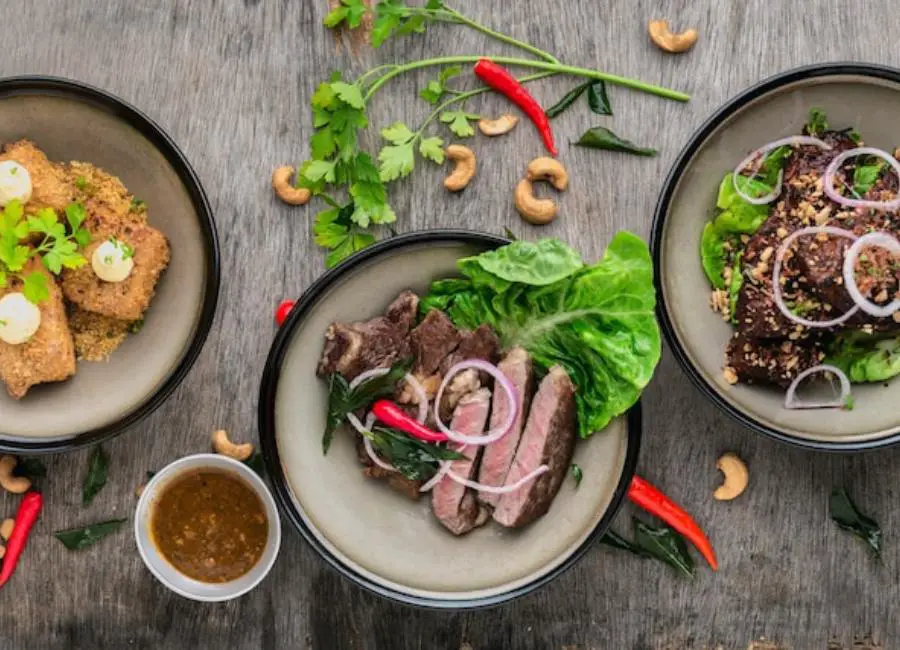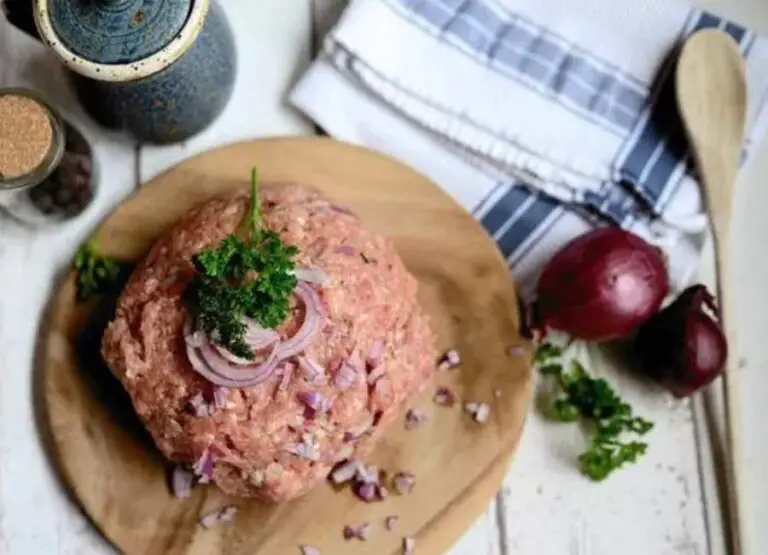17 Foods That Cause Constipation And Bloating
Let’s discuss foods that cause constipation and bloating…
Are you feeling bloated and uncomfortable after meals, constipation might be the culprit.
But did you know that certain foods can actually make constipation worse?
In this short blog post, we’ll look at some common foods that cause constipation and bloating, and suggest some simple dietary changes to help you feel better fast!
Explanation of constipation and bloating
Constipation is a condition where a person has difficulty passing a bowel movement or has infrequent bowel movements.
Bloating is a common symptom of constipation, which can make a person feel like they are filled with air like a balloon.
Constipation can contribute to abdominal pain and bloating because the longer the stool stays in the colon, the more time bacteria have to ferment what’s there, resulting in more gas and bloating.
Aside from constipation, other causes of bloating include gut sensitivity, small intestinal bacterial overgrowth, irritable bowel syndrome, gastroesophageal reflux disease, lactose intolerance, and celiac disease.
There are several lifestyle changes and medical treatments that can help prevent constipation-related bloating.
Foods That Cause Constipation And Bloating
Certain foods can cause constipation and bloating, these include high-fat meats, dairy products, eggs, sweets, and processed foods.
Fried or fast foods, as well as snacks like chips, cookies, chocolate, and ice cream, can also increase the risk of constipation by reducing the total amount of fiber consumed per day.
It is recommended to eat foods that are high in fiber, such as whole grains, apples, bananas, cooked vegetables, and oatmeal, to help relieve or reduce the risk of constipation.
Drinking enough fluids is also important to help fiber work better and prevent harder stools that are more difficult to pass.
Foods That Cause Constipation
The following are some common foods that can cause constipation:
1. Dairy Products
Lactose, a sugar found in dairy products such as milk, cheese, and yogurt, can be difficult to digest for persons who are lactose intolerant.
Keep in mind that lactose intolerance develops when the body lacks the enzyme lactase, which breaks down lactose.
Lactose can ferment in the intestines if it is not broken down, producing gas, bloating, and constipation.
If you feel you are lactose intolerant, you should avoid or restrict your use of dairy products to avoid constipation.
2. Fried Foods
Fried meals are heavy in fat, which can impede digestion and make it difficult to evacuate stools.
Furthermore, fried foods are frequently low in fiber, which is necessary for promoting bowel regularity.
If you are prone to constipation, limiting your intake of fried foods and opting for healthier cooking techniques such as grilling, baking, or roasting may be beneficial.
3. Red Meat
Red meat contains a high concentration of protein and fat, which might take longer to digest than other meals.
As a result, the digestive process slows and the feces becomes tougher and more difficult to pass.
Furthermore, some people may experience bloating and gas, which can contribute to constipation.
If you have constipation, cutting less on red meat and replacing it with leaner protein sources like fish or chicken may help.
Learn more about red meat constipation and diarrhea.
4. Bananas
Bananas are high in potassium and fiber, however, they are high in starch, which some people find difficult to digest.
When starch is not broken down in the small intestine, it can move into the large intestine and ferment, causing constipation.
If you are prone to constipation, it may be beneficial to reduce your intake of bananas and instead choose fruits that are lower in starch, such as berries or apples.
5. Processed Foods
Processed meals, such as white bread and spaghetti, as well as snacks like chips and cookies, are frequently poor in fiber, which can lead to constipation.
Fiber bulks up the feces, making it simpler to move through the digestive tract.
When fiber is lacking in the diet, the stool can become hard and difficult to pass.
To enhance bowel regularity, eat lots of high-fiber foods such as fruits, vegetables, whole grains, and legumes.
6. Unripe or Raw Vegetables
Fiber is abundant in unripe or uncooked plants such as broccoli, cauliflower, and cabbage.
While fiber is necessary for bowel regularity, too much fiber can be difficult to digest, resulting in constipation.
Furthermore, raw vegetables can be difficult on the digestive system, making stool passage through the gut more difficult.
If you have constipation, cooking your vegetables may assist in making them simpler to digest.
7. Caffeine
Caffeine is a stimulant that might cause bowel motions to rise and can produce dehydration, which can contribute to constipation.
Keep in mind that caffeine is also a diuretic, which means it causes the body to lose fluids faster. Dehydration causes the feces to become firm and difficult to pass.
Limit your caffeine intake and drink lots of water throughout the day to encourage bowel regularity.
8. Chocolate
Chocolate includes caffeine and fat, which can both impede digestion and contribute to constipation.
Furthermore, some people may be sensitive to theobromine, a compound found in chocolate that can have a laxative effect in small amounts but cause constipation in larger amounts.
If you are prone to constipation, cutting less on chocolate and replacing it with healthy snacks like fresh fruit or nuts may be beneficial.
9. Alcohol
Dehydration caused by alcohol might result in constipation.
Furthermore, alcohol can slow the digestive process and make it more difficult for stool to pass through the gut.
Alcohol can also irritate the digestive tract’s lining, causing inflammation and pain.
If you are prone to constipation, restrict your alcohol consumption and drink lots of water to remain hydrated.
Foods That Cause Bloating
Here are some common foods that cause bloating:
1. Artificial sweeteners
Most artificial sweeteners are not metabolized by the body and can thus lead to bloating and gas.
Furthermore, some artificial sweeteners can have a laxative effect, resulting in diarrhea.
People who consume a lot of artificial sweeteners may develop a tolerance, causing even more digestive issues.
2. Carbonated beverages
Bloating can be caused by carbonated beverages because they contain gas that can become stuck in the digestive system.
Furthermore, many carbonated beverages contain a lot of sugar, which can cause constipation.
Some carbonated beverages contain caffeine, which can stimulate the digestive system and cause gas and bloating.
3. Broccoli
Broccoli is another high-fiber meal that is essential for keeping regular bowel motions.
The high fiber content, on the other hand, might make it difficult to digest and cause bloating and constipation.
Broccoli also contains raffinose, a sugar that is difficult for the body to digest and can induce gas and bloating.
4. Beans
Beans are high in fiber, which aids digestion and prevents constipation.
On the other hand, beans contain oligosaccharides, which are not easily digested in the small intestine.
As a result, they pass through to the large intestine, where bacteria digest them.
This procedure might result in gas and bloating.
Furthermore, beans are frequently cooked with spices and seasonings that can contribute to gas and bloating.
5. Wheat
Wheat includes gluten, a protein that some individuals struggle to digest.
Gluten can trigger gut inflammation in patients with celiac disease or non-celiac gluten sensitivity, resulting in bloating, gas, and constipation.
Even among persons who are not gluten intolerant, eating a lot of wheat might cause digestive issues due to the high fiber content and difficulties in digesting.
6. Onions and garlic
Onions are a ubiquitous element in many cuisines, and they may contribute to taste as well as nutrients.
On the other hand, onions contain fructans, a form of carbohydrate that humans cannot readily digest.
Fructans, like raffinose and oligosaccharides, travel through the small intestine undigested and reach the large intestine, where microorganisms ferment them.
This fermentation process generates gas, which causes bloating and discomfort.
7. Apples
Keep in mind that Apples are high in fiber and minerals, yet they can induce bloating.
Apples contain fructose, a form of sugar that some individuals have difficulty digesting.
When fructose passes undigested through the small intestine, it enters the large intestine and is fermented by bacteria.
This fermentation process generates gas, which causes bloating and discomfort.
8. Cruciferous Vegetables
Cauliflower and cabbage are both abundant in fiber and minerals, but they can also induce bloating.
These plants contain raffinose, a carbohydrate that humans cannot readily digest.
Raffinose, like oligosaccharides, travels through the small intestine and into the large intestine, where microorganisms ferment it.
This fermentation process generates gas, which causes bloating and discomfort.
9. Dairy
Dairy products such as milk, cheese, and yogurt are high in calcium and protein, however, they can induce bloating in lactose-intolerant persons.
Lactose is a kind of sugar that is present in milk and other dairy products.
Lactose intolerance is caused by a deficiency of the enzyme lactase, which is required to break down lactose in the small intestine.
As a result, lactose reaches the large intestine undigested, where bacteria ferment it, causing gas and bloating.
Other Factors Contributing to Constipation and Bloating
There are several factors that can contribute to constipation and bloating, including:
- Lack of physical activity: A sedentary lifestyle can slow down digestion and cause constipation.
- Dehydration: Lack of fluids in the body can cause the stool to become hard and difficult to pass, leading to constipation.
- Certain medications: Some medications, such as painkillers, antidepressants, and blood pressure medications, can cause constipation.
- Medical conditions: Certain medical conditions, such as irritable bowel syndrome (IBS), inflammatory bowel disease (IBD), and thyroid disorders, can cause constipation and bloating.
- Poor diet: A diet low in fiber and high in processed foods can contribute to constipation and bloating.
- Stress: Stress and anxiety can affect digestion and lead to constipation and bloating.
Tips for Relieving Constipation and Bloating
Here are some common tips for relieving constipation and bloating:
- Drink plenty of water: Dehydration can lead to constipation and bloating. Drinking enough water can help soften stools and make them easier to pass.
- Increase fiber intake: Adding more fiber to your diet can help prevent constipation and relieve bloating. Fiber-rich foods include fruits, vegetables, whole grains, and beans.
- Exercise regularly: Regular physical activity can help stimulate bowel movements and reduce bloating. Aim for at least 30 minutes of exercise a day.
- Eat smaller, more frequent meals: Avoiding large meals can help prevent bloating. Eating smaller, more frequent meals can also help regulate bowel movements.
- Avoid processed and high-fat foods: Processed foods and those high in fat can slow down digestion and contribute to constipation. Try to eat a healthy, balanced diet with a variety of whole foods.
- Try probiotics: Probiotics are live bacteria that can help improve digestion and relieve constipation. They can be found in fermented foods like yogurt and kefir, or taken as a supplement.
- Avoid constipating medications: Some medications can cause constipation as a side effect. If you are experiencing constipation, talk to your doctor about adjusting your medication regimen.
- Use laxatives sparingly: Overuse of laxatives can lead to dependency and worsen constipation. Only use them as directed by your doctor.
- Reduce stress: Stress can have a negative impact on digestion and contribute to constipation and bloating. Finding ways to manage stress, such as through exercise or meditation, may help alleviate these symptoms.
Ways to prevent constipation and bloating
Here are some common ways to prevent constipation and bloating:
- Eat a High-Fiber Diet: Eating a diet that is high in fiber is one of the best ways to prevent constipation and bloating. Fiber adds bulk to your stool, which makes it easier to pass, and it also helps to regulate your digestive system.
- Stay Hydrated: Drinking plenty of water is important for preventing constipation and bloating. Water helps to soften your stool, making it easier to pass, and it also helps to keep your digestive system functioning properly.
- Exercise Regularly: Regular exercise can also help to prevent constipation and bloating. Exercise speeds up your metabolism, which can help your digestive system work more efficiently.
- Don’t Ignore the Urge to Go: Ignoring the urge to go to the bathroom can lead to constipation. When you feel the urge to go, it’s important to listen to your body and take the time to use the bathroom.
- Limit Foods Known to Cause Gas: Some foods are known to cause gas, which can contribute to bloating. Examples include beans, broccoli, cabbage, and onions. Limiting these foods in your diet can help to reduce bloating.
- Eat Smaller Meals: Eating large meals can put a strain on your digestive system, leading to constipation and bloating. Eating smaller meals throughout the day can help your digestive system work more efficiently.
- Reduce Your Stress: Stress can also contribute to digestive problems like constipation and bloating. Finding ways to reduce your stress, such as meditation or yoga, can help to prevent these issues.
- Try Probiotics: Probiotics are good bacteria that can help to regulate your digestive system. Consuming probiotics through food or supplements can help to prevent constipation and bloating.
- Don’t Overdo It with Laxatives: While laxatives can provide quick relief for constipation, overusing them can actually make the problem worse. It’s important to use laxatives only as directed and to talk to your doctor if you are struggling with chronic constipation.
Learn more about high-protein diets and constipation.
Conclusion
In conclusion, it’s important to be mindful of the foods we eat and how they affect our bodies.
While some foods may be delicious, they can also cause constipation and bloating.
By avoiding or limiting these foods, we can improve our digestive health and overall well-being.
Remember to stay hydrated, eat a balanced diet, and listen to your body’s needs.
Learn more about Tuna and Salmon causing constipation



![Can A High Protein Diet Cause Constipation [Answered]](https://foodcreeks.com/wp-content/uploads/2023/02/Can-A-High-Protein-Diet-Cause-Constipation-768x555.jpg)

![How To Tell If Smoked Meat Is Bad [10 Signs]](https://foodcreeks.com/wp-content/uploads/2023/02/How-To-Tell-If-Smoked-Meat-Is-Bad-768x555.jpg)

![Do You Flip Meat When Smoking [Answered]](https://foodcreeks.com/wp-content/uploads/2023/02/Do-You-Flip-Meat-When-Smoking-768x555.jpg)